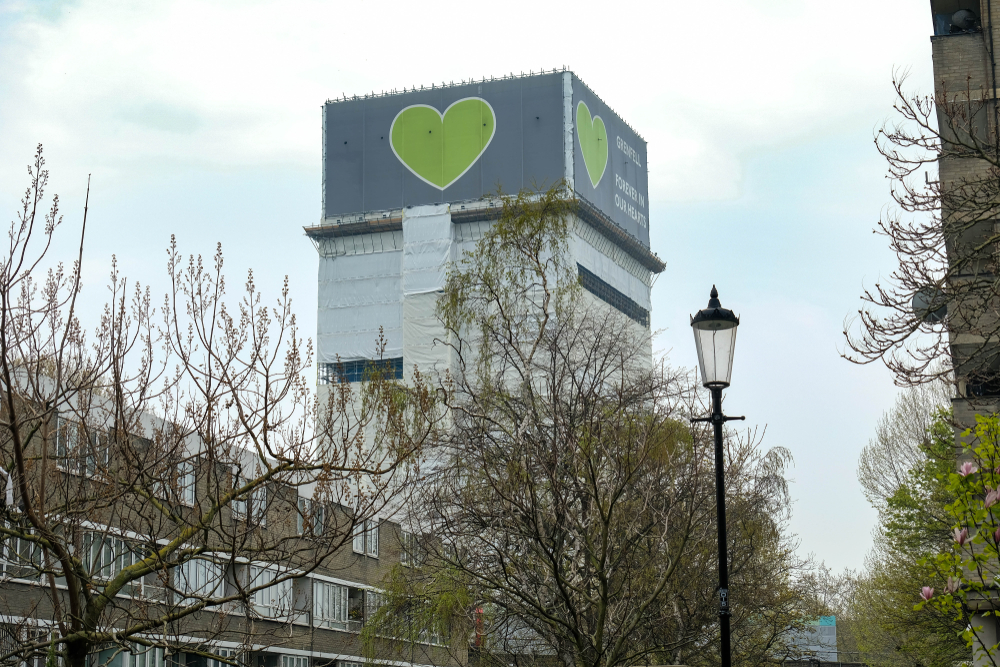
LFB completes all Grenfell Tower Inquiry recommendations
Phase 1 of the Inquiry included 29 recommendations for the London Fire Brigade
The London Fire Brigade (LFB) has announced that it has completed all 29 of the recommendations from Phase 1 of the Grenfell Tower Inquiry and promised further change to come.
Updates and improvements made by the LFB range from changes to firefighter training and refreshed processes for managing major incidents, to new equipment and technology, and improved communication.
72 people tragically lost their lives in the Grenfell Tower fire that started in the early hours of 14 June 2017. It is one of the UK’s worst disasters in modern history with a whole community losing their homes.
On 30 October 2019, the Grenfell Tower Inquiry, chaired by Sir Martin Moore-Bick, published its Phase 1 report, which looked at the events that took place during 14 June 2017, investigating the cause of the fire, its subsequent development and the steps taken by the LFB and the other emergency services in response to it.
It also contains recommendations arising out of the findings.
Phase 2 of the Inquiry examines the causes of the events of 14 June 2017, including how Grenfell Tower came to be in a condition which allowed the fire to spread in the way identified by Phase 1. Phase 2 is yet to be published.
PHASE 1 REPORT
The Phase 1 report made 46 recommendations, directed at bodies including the London Fire Brigade, fire and rescue services more widely, other emergency services, national Government and owners and managers of residential buildings.
In total there were 29 recommendations aimed at the London Fire Brigade, 14 solely for the Brigade to address and 15 to address in conjunction with other organisations.
The changes and updates announced by the LFB include replacing the entire fleet of high-reach vehicles and the introduction of new 64 metre Turntable Ladders, the tallest ladders in service across Europe.
New command units equipped with technology to improve incident commanders’ ability to respond at the incident ground entered service at the end of 2023.
Since their introduction in 2018 over 200 people have been rescued using escape hoods, which offer the public protection from toxic smoke. London’s firefighters are amongst the first in the UK to carry them.
To improve communication new fire ground radios have been introduced that allow firefighters wearing helmets and breathing apparatus sets to communicate effectively with their teams and entry control officers when inside buildings.
Drones are also used to transmit information about incidents. The drones provide live images and thermal imagery to better allow incident commanders to develop tactics to tackle fires. The drones can also act as a loudspeaker to provide instructions or reassurance and provide light in dark conditions.
Changes to processes include control officers benefiting from improved training on providing fire survival guidance, as well as software that allows members of the public to provide control officers with a video feed from an incident.
London Fire Commissioner Andy Roe said: “We accepted every recommendation from the Grenfell Tower Inquiry and have been working hard over the past five years to implement significant changes to the way we operate.
“We are the only organisation to have completed every recommendation directed specifically to them and I am proud of the work that staff have put into this, but I also know that there is still much more to do. Fundamental change in large, complex organisations takes time and while our transformation programme is safely on track, we are not finished. I’m dedicated to continuing this journey with full commitment so that we can continue to be trusted to serve and protect our capital.
“These improvements are paving the way forward for further change as we await the next report from Phase 2 of the Inquiry. We owe it to the bereaved families, the survivors, the residents of Grenfell Tower and Londoners to change and improve.”
Mayor of London Sadiq Khan said: “The Grenfell Tower fire was an appalling tragedy and we will always remember the 72 people who lost their lives. The most fitting tribute to the people who died, their loved ones and those who survived is to ensure that nothing like this ever happens again.
“I have been relentless in doing everything I can to ensure the recommendations from Phase 1 of the Grenfell Tower Inquiry are implemented in full. Following City Hall’s significant investment, the LFB’s new equipment and protocols will help save lives. I welcome the significant steps the London Fire Brigade have taken to transform the way in which it responds to incidents, and high-rise building fires in particular.
“But there is more to do, and it is vital that the Government steps up along with housing and building industries to act now and ban combustible materials in external walls no matter their height and provide funding support for those unfairly saddled with large costs to remediate unsafe cladding. It’s vital that all possible steps are taken now to prevent another tragedy.”
The announcement that all recommendations have been met comes a week after His Majesty’s Inspectorate of Constabulary and Fire & Rescue Services (HMICFRS) removed LFB from enhanced monitoring, in recognition of the improvements delivered by the Brigade.
